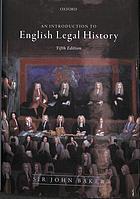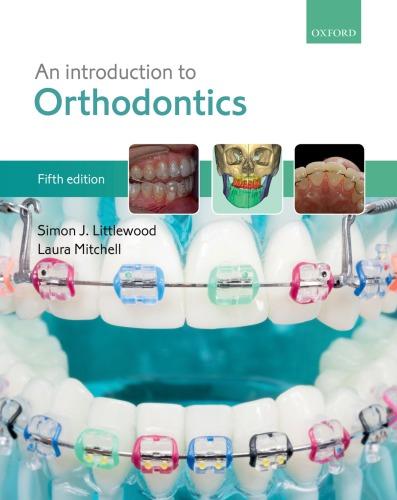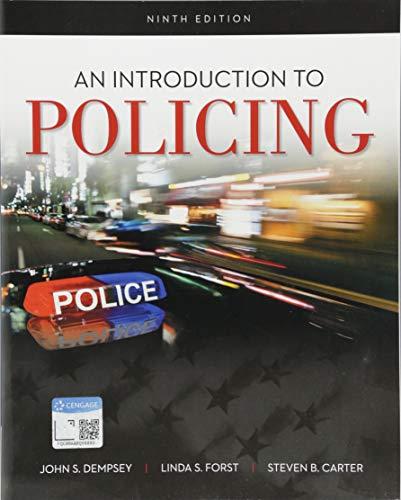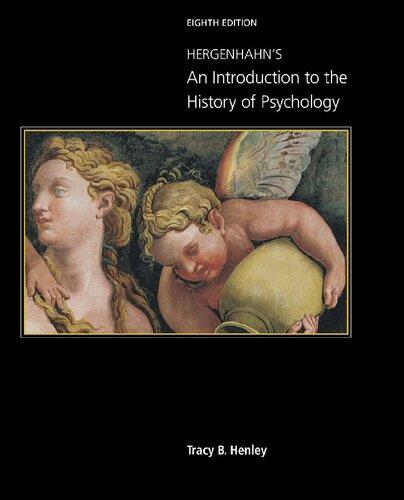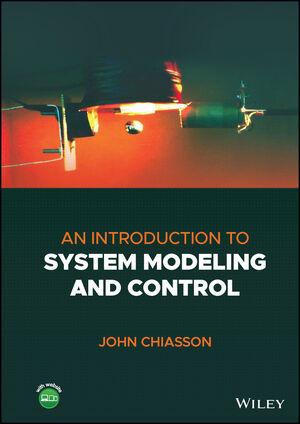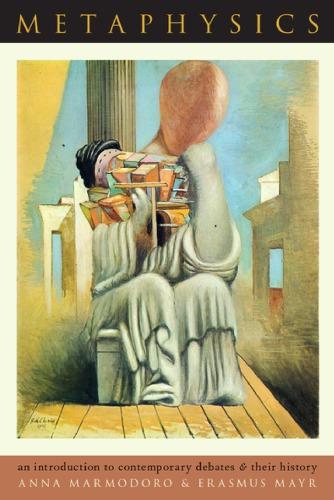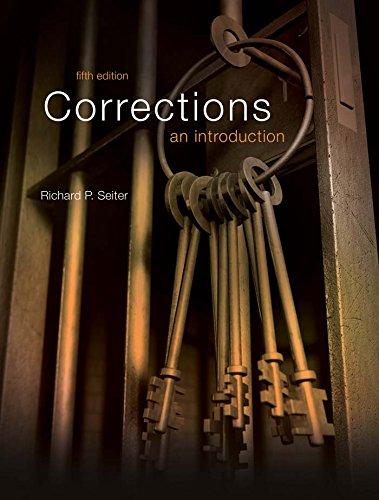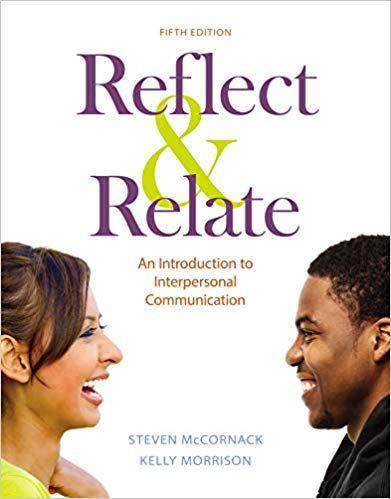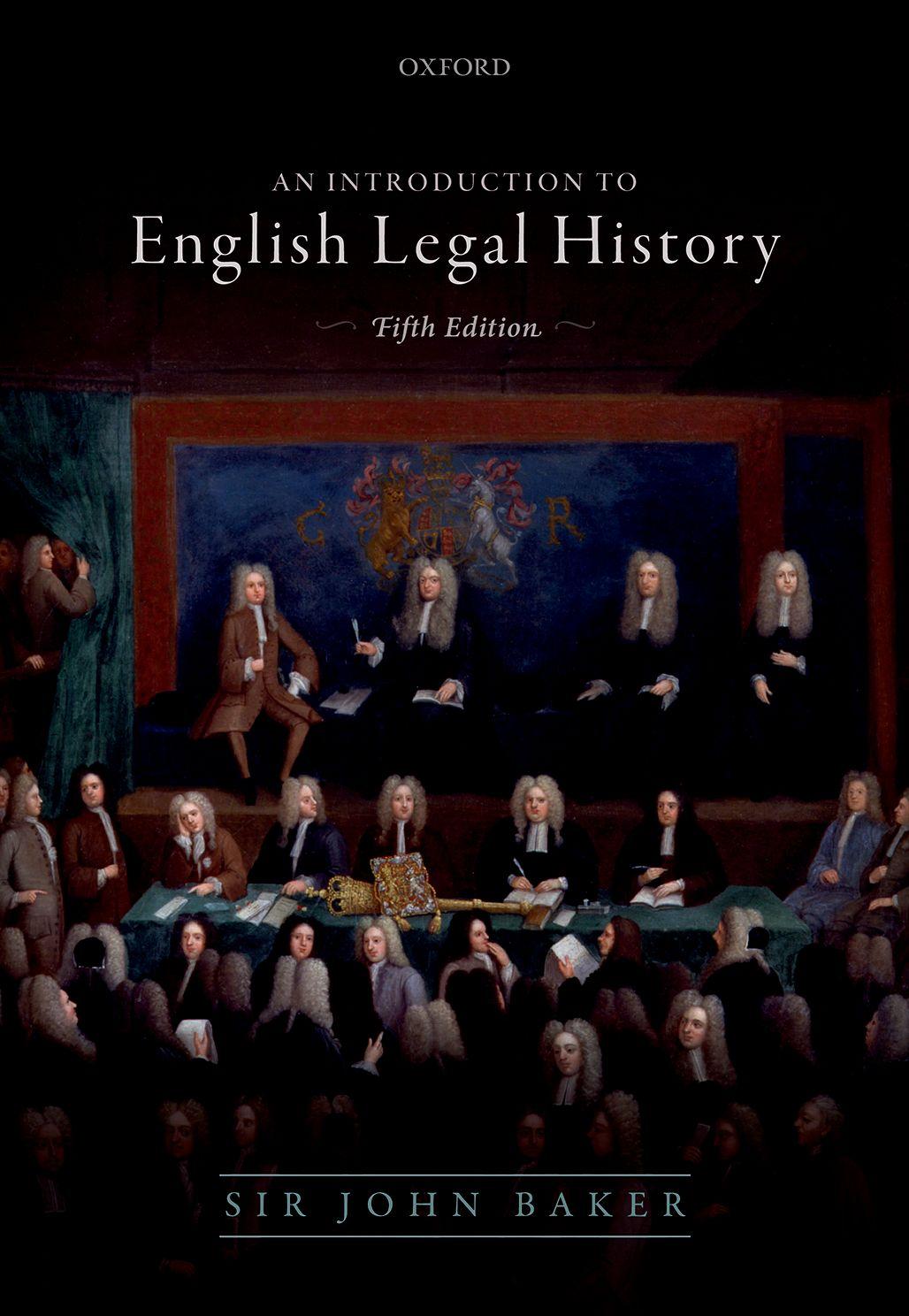Table of Statutes
Note: the best printed text of the statutes from 1236 to 1713 is e Statutes of the Realm (1810–27). For the 1215 and 1225 versions of Magna Carta see the appendices to J. C. Holt, Magna Carta (3rd edn by G. Garnett and J. Hudson, 2015).
Henry I’s Coronation Edict (or Charter) 1100 15, 206, 216, 260, 279, 411
Constitutions of Clarendon 1164 137, 138, 216
Assize of Clarendon 1166.
Assize of Northampton 1176
252, 545
20, 252, 542
Assize of Windsor 1179 20, 252
Magna Carta 1215 6, 217
cl. 2 (relief)
cl. 4–5 (wardship)
cl. 6 (disparagement of wards)
260
261
261
cl. 12, 14, 15 (feudal aids) 217, 258, 259
cl. 17 (common pleas) 23
cl. 18 (assizes)
cl. 19 (assizes)
23, 24, 26
26
cl. 20 (amercements for trespass) 503, 552
cl. 24 (sheri s) 543
cl. 27 (administration of estates)
cl. 32 (forfeiture)
.412
542
cl. 34 (praecipe) 26, 255
cl. 36 (mortmain) 262
cl. 39 (liberty of the subject). See Magna Carta 1225, c. 29
cl. 41 (merchants).
2 Hen. III, Magna Carta 1217
c. 7 (widows)
cc. 12–13 (assizes)
c. 32 (liberty)
c. 36 (feudal services)
c. 40 (mortmain)
9 Hen. III, Magna Carta 1225 39, 217
c. 2 (relief) 259
cc. 4–5 (wardship)
c. 6 (disparagement of wards)
261
c. 7 (widows) 289, 290
c. 11 (common pleas) 23, 44–5, 47, 49
c. 12 (assizes)
c. 14 (amercements for trespass)
24, 149
503, 552
c. 17 (sheri s) 26, 543
c. 18 (reasonable parts)
c. 22 (forfeiture)
c. 24 (praecipe).
.411
542
26, 255
c. 26 (de odio et atia) 544
c. 29 (liberty of the subject) 60, 105, 130, 154, 159, 225, 482–3, 502, 506–10, 548
c. 30 (merchants) 500
c. 32 (feudal services)
c. 36 (mortmain)
20 Hen. III, Provisions of Merton 1236
cc. 6–7 (guardians)
c. 8 (novel disseisin)
c. 9 (bastardy)
20 Hen. III, ‘Statute’ of Ireland (De coheredibus) 1236
42 Hen. III, Provisions of Oxford 1258
43 Hen. III, Provisions of Westminster 1259
52 Hen. III, Statute of Marlborough 1267
c. 5 (infringers of Magna Carta).
c. 6 (wardship)
c. 9 (suit)
c. 16 (primer seisin)
c. 17 (guardians in socage)
c. 23 (waste)
c. 29 (writs of entry)
3 Edw. I, Statute of Westminster I 1275
c. 4 (wreck)
c. 6 (amercements for trespass)
c. 12 (refusal of trial) .
c. 15 (bail) .
c. 29 (deceit by lawyers) 166
c. 36 (feudal aids)
6 Edw. I, Statute of Gloucester 1278
259
c. 1 (damages and costs) 73
c. 3 (tenancy by the curtesy) 300
c. 4 (cessavit)
c. 5 (waste)
c. 8 (pleas of trespass)
284, 585
26, 68
c. 9 (homicide) 544, 571
7 Edw. I, Statute of Mortmain (De viris religiosis) 1279.
10 Edw. I, ‘Statute’ of Rutland 1282
12 Edw. I, Statute of Rhuddlan (or of Wales) 1284
262–3
55
37, 339, 340, 342
13 Edw. I, Statute of Westminster II 1285 218
c. 1, De donis conditionalibus 217, 292, 293–4, 299–302, 327, 583
c. 2 (replevin)
c. 4 (wreck)
257
.413
c. 11 (account) 387
c. 12 (conspiracy) 493
c. 16 (wardship) 261
c. 18 (elegit)
c. 21 (cessavit)
74
c. 24 (writs ‘in consimili casu’) 69, 295
c. 25 (assize of novel disseisin) 256, 452, 460
c. 30 (nisi prius)
c. 32 (quale jus)
24, 88, 96
262
c. 34 (rape) 553, 573
13 Edw. I, Statute of Winchester 1285 218
c. 2 (robberies)
13 Edw. I, Statute of Merchants 1285.
18 Edw. I, Quia emptores terrarum 1290
18 Edw. I, Statute of Quo Warranto 1290
25 Edw. I, Con rmation of Magna Carta 1297
25 Edw. I, Con rmatio Cartarum 1297
28 Edw. I, Articuli super Cartas 1300
c. 4 (Exchequer)
c. 5 (court coram rege)
33 Edw. I, Ordinatio de conspiratoribus 1305
34 Edw. I, De tallagio non concedendo
9 Edw. II, Articuli cleri 1315.
Prerogativa Regis (date uncertain)
c. 13 (or 11) (wreck and royal sh)
c. 16 (forfeiture)
1 Edw. III, st. ii (1327)
c. 11 (suits for defamation)
c. 12 ( nes for alienation) 259
2 Edw. III, Statute of Northampton 1328
c. 2 (pardon for felony)
557
c. 8 (justices) 126, 177
4 Edw. III, c. 7 (executors, 1330) 427
14 Edw. III, st. i, c. 14 (writs of privy seal, 1340) 177
14 Edw. III, st. ii, c. 1 (taxation, 1340)
18 Edw. III, st. ii, c. 2 (justices of peace, 1344)
18 Edw. III, st. iv (judges’ oath) 177
23 Edw. III, Ordinance of Labourers 1349 354
25 Edw. III, st. i, De natis ultra mare 1351.
25 Edw. III, st. ii, Statute of Labourers 1351
25 Edw. III, st. iv (provisors, 1351) 139
25 Edw. III, st. v (1351)
c. 2, Treason Act 1351
c. 3 (juries)
c. 4 (jurisdiction of council)
c. 11 (feudal aids)
27 Edw. III, st. i (suing outside the realm, 1353)
27 Edw. III, st. ii, Statute of the Staple 1353, c. 9
28 Edw. III (1354)
568–9
c. 2 (marches of Wales) 37
c. 3 (due process)
c. 13 (juries de medietate linguae)
31 Edw. III, st. i (1357)
c. 11 (administrators)
c. 12 (error from the Exchequer) 147
34 Edw. III (1361)
c. 1, Justices of the Peace Act 1361
c. 9 (labourers)
354
42 Edw. III, c. 3 (due process, 1368) 60, 105, 126
45 Edw. III, c. 3 (tithes of wood, 1371) 139
50 Edw. III, c. 6 (fraudulent feo ments to uses, 1376)
2 Ric. II, st. i, c. 5 (scandalum magnatum, 1378)
268
466
6 Ric. II, st. i, c. 3 (writs of nuisance, 1382) 452
13 Ric. II, st. i, c. 5 (admiralty, 1389) 132
13 Ric. II, st. ii, c. 1 (pardons, 1390)
15 Ric. II (1391)
c. 2, Statute of Forcible Entry 1391
c. 5 (uses and mortmain)
16 Ric. II, Statute of Winchester 1392, c. 5 (praemunire) 139
17 Ric. II, c. 6 (subpoena, 1393) .
1 Hen. IV, c. 8 (assize against patentee, 1399)
2 Hen. IV
c. 11 (admiralty, 1400)
c. 15 (de heretico comburendo, 1400)
4 Hen. IV, c. 23 (judgments at law, 1402)
5 Hen. IV, c. 5 (malicious wounding, 1403)
13 Hen. IV, c. 7 (riot, 1412)
3 Hen. V. st. ii, c. 6 (clipping coin, 1415)
18 Hen. VI, c. 29 (juries de medietate linguae)
Royal Marriages Act 1428
1 Edw. IV, c. 2 (sheri s’ tourns, 1461)
3 Edw. IV, c. 4 (importation of playing cards, 1463)
8 Edw. IV, c. 2 (liveries, 1468)
22 Edw. IV, c. 7 (enclosing woods, 1482) 241
1 Ric. III (1484)
c. 1 (uses)
c. 4 (juries in tourn)
c. 7 ( nal concords)
3 Hen. VII (1487)
c. 1, ‘Pro camera stellata’ 127
c. 14 (compassing the king’s death)
4 Hen. VII (1490)
c. 4 (proclamation of exigent)
c. 12 (justices of peace)
c. 17 (wardships and uses)
c. 24 ( nal concords)
7 Hen. VII, c. 2 (protections, 1493)
11 Hen. VII (1495)
c. 1 (adherence to de facto king)
c. 8 (usury)
c. 17 (birding with nets)
12 Hen. VII, c. 7 (petty treason, 1496)
19 Hen. VII (1504)
c. 9 (mesne process)
c. 15 (wardships and uses)
c. 28 (attainders)
4 Hen. VIII, c. 2 (bene t of clergy, 1512) 556, 572
5 Hen. VIII, c. 2 (clothiers’ marks, 1513) 487
21 Hen. VIII (1529)
c. 7 (embezzlement by a servant)
576
c. 11 (restitution of stolen goods) 410
c. 15 (falsi cation of recoveries) 320
22 Hen. VIII (1530)
c. 9 (murder by poisoning)
556
c. 14 (abjuration) 553
23 Hen. VIII (1532)
c. 1 (bene t of clergy)
c. 5 (commissions of sewers)
556, 572, 573, 574
162, 225
c. 6 (recognizances) 331
c. 11 (escape) 556
c. 15 (costs) 49, 73
24 Hen. VIII, c. 12, Restraint of Appeals 1532 .
25 Hen. VIII (1533)
c. 6 (buggery)
c. 14 (heresy trials)
c. 19, Submission of the Clergy 1533.
c. 21, Ecclesiastical Licences Act 1533
27 Hen. VIII (1536)
c. 10, Statute of Uses 1536 211, 220, 274–7, 290, 305–7, 323, 324
c. 12 (clothiers’ marks, 1536) .
c. 16, Statute of Enrolments 1536
276–7, 324
c. 26, Laws in Wales Act 1536 38
31 Hen. VIII (1539)
c. 1 (partition)
c. 6 (monks)
c. 8 (proclamations)
32 Hen. VIII (1540)
c. 1, Statute of Wills 1540 272, 276, 305–6
c. 12 (sanctuary) .
c. 16 (aliens)
c. 30, Statute of Jeofails 1540
c. 38, Marriage Act 1540 531
c. 45 (Court of Wards)
33 Hen. VIII (1541)
c. 26 (Sir John Shelton’s will)
c. 39 (Court of Surveyors)
34 & 35 Hen. VIII (1542)
c. 5 (explanation of the Statute of Wills)
c. 26 (Wales and the Marches)
35 Hen. VIII, c. 6 (tales de circumstantibus, 1543)
1 Edw. VI, c. 12 (criminal law, 1547) 555, 569, 574
2 & 3 Edw. VI (1549)
c. 8 (lessees)
c. 13 (tithes)
2 & 3 Ph. & Mar., c. 7, Sale of Horses Act 1555
1 Eliz. I, c. 1 (royal supremacy)
27 Eliz. I, c. 8 (Exchequer Chamber, 1585)
.411
.141, 511
54, 147
43 Eliz. I, c. 6 (costs) 437
1 Jac. I, c. 8, Statute of Stabbing 1603 572
21 Jac. I (1624)
c. 3, Statute of Monopolies 1624
c. 6 (bene t of clergy for women)
483, 485
555
c. 16, Statute of Limitations 1624 322, 437
c. 28 (sanctuary) 554
3 Car. I, c. 1, Petition of Right 1628
16 Car. I (1641)
509
c. 10, Star Chamber Abolition Act 1641 126, 509
c. 11 (ecclesiastical courts) 511
c. 14, Ship-Money Act 1641
Blasphemy Act 1648.
12 Car. II, c. 24, Military Tenures Abolition Act 1660
227, 509
229
277
13 Car. II, c. 12 (ecclesiastical courts) 511
13 Car. II, st. ii, c. 2 (mesne process, 1661) 53
22 & 23 Car. II (1670)
c. 1, Coventry’s Act 1670 (wounding)
c. 9, Duties on Law Proceedings Act 1670
c. 10, Statute of Distribution 1670.
29 Car. II, c. 3, Statute of Frauds 1677
s. 4 (contracts)
s. 7 (declaration of trust)
s. 10 (trusts)
s. 12 (tenancy pur auter vie)
s. 17 (sale of goods)
31 Car. II, c. 2, Habeas Corpus Act 1679
1 Will. & Mar., st. i, c. 27 (Council in the Marches, 1689)
1 Will. & Mar., st. ii, Bill of Rights 1689
3 Will. & Mar., c. 9 (bene t of clergy for women, 1691)
4 Will. & Mar., c. 18 (malicious informations, 1692)
6 & 7 Will. & Mar., c. 6 (marriages, 1694)
7 & 8 Will. III, c. 35 (marriages, 1695)
8 & 9 Will. III, c. 11, Administration of Justice Act 1696
9 [& 10] Will. III (1698)
c. 15 (arbitration)
c. 35, Blasphemy Act 1698
12 & 13 Will. III, c. 2, Act of Settlement 1700
1 Ann., st. ii, c. 9 (defence witnesses, 1702)
3 & 4 Ann., c. 8 (or 9), Promissory Notes Act 1704
4 & 5 Ann., c. 3, Administration of Justice Act 1705
s. 4 (several pleas)
s. 9 (attornment)
ss. 12–13 (penalties)
[5 &] 6 Ann. (1707)
c. 9 (bene t of clergy)
c. 11, Union with Scotland Act 1707
c. 58 (or 31), Act preventing Mischiefs from Fire 1707.
8 Ann., c. 19, Copyright Act 1710
4 Geo. I, c. 11, Transportation Act 1718
6 Geo. I, c. 5 (error from Ireland, 1719)
4 Geo. II, c. 26 (Latin and court-hand, 1731)
39
95
11 Geo. II, c. 19 (parol leases, 1738) 397
26 Geo. II, c. 33, Lord Hardwicke’s Marriage Act 1753 518, 521
12 Geo. III, c. 20 (refusal to plead, 1772) 549
19 Geo. III, c. 74 (criminal punishments, 1779)
32 Geo. III, c. 60, Fox’s Libel Act 1792
557, 558
512
39 Geo. III (1799) c. 81, Combination Act 1799 494 c. 85 (embezzlement)
39 & 40 Geo. III, c. 106, Combination Act 1800
577
41 Geo. III, c. 107 (copyright, 1801) 486
47 Geo. III, c. 36 (abolition of slave trade, 1807) 515
56 Geo. III, c. 100, Habeas Corpus Amendment Act 1816
59 Geo. III, c. 46 (appeal of murder, 1819)
4 Geo. IV (1823)
509
81
c. 76, Marriage Act 1823 521 c. 83, Factors Act 1823 .411
7 & 8 Geo. IV, c. 28, Criminal Law Act 1827 . .
549, 557
9 Geo. IV, c. 31 (petty treason, 1828) 570
11 Geo. IV & 1 Will. IV (1830)
c. 68, Carriers Act 1830 383
c. 70, Law Terms Act 1830
2 & 3 Will. IV (1832)
148
c. 39, Uniformity of Process Act 1832 58, 75, 591
c. 92, Privy Council Appeals Act 1832 151
3 & 4 Will. IV (1833)
c. 15, Bulwer Lytton’s Act 1833.
c. 27, Real Property Limitation Act 1833
c. 41, Judicial Committee Act 1833 151
c. 73, Slavery Abolition Act 1833
c. 105, Dower Act 1833
c. 106, Inheritance Act 1833
5 & 6 Will. IV (1835)
c. 54, Lord Lyndhurst’s Act 1835
c. 65, Lecture Copyright Act 1835
c. 76, Municipal Corporations Act 1835
6 & 7 Will. IV (1836)
c. 32, Building Societies Act 1836
c. 85, Marriage Act 1836
c. 114, Trial for Felony Act 1836
7 Will. IV & 1 Vict., c. 86 (burglary, 1837)
1 & 2 Vict., c. 62, Judgments Act 1838
4 & 5 Vict., c. 21, Conveyance by Release Act 1841
6 & 7 Vict. (1843)
c. 85, Evidence Act 1843 (Lord Denman’s Act)
c. 96, Lord Campbell’s Libel Act 1843
8 & 9 Vict. (1845)
c. 106, Real Property Act 1845
c. 112, Satis ed Terms Act 1845
9 & 10 Vict. (1846)
c. 54 (bar of Common Pleas)
c. 93, Fatal Accidents Act 1846 (Lord Campbell’s Act)
11 & 12 Vict. (1848)
445–6, 490
c. 42, Indictable O ences Act 1848 233
c. 43, Summary Jurisdiction Act 1848 233, 552
c. 78 (crown cases reserved) 149
14 & 15 Vict., c. 99, Evidence Act 1851 (Lord Brougham’s Act)
15 & 16 Vict. (1852)
99
c. 76, Common Law Procedure Act 1852 75, 148, 322, 591
c. 83, Patent Law Amendment Act 1852 485
17 & 18 Vict. (1854)
c. 31, Railway and Canal Tra c Act 1854
c. 125, Common Law Procedure Act 1854 100
18 & 19 Vict., c. 41, Ecclesiastical Courts Act 1855 143 19 & 20 Vict., c. 120, Settled Estates Act 1856.
20 & 21 Vict. (1857)
c. 43, Summary Jurisdiction Act 1857
c. 54 (fraud by trustee or bailee).
c. 77, Court of Probate Act 1857 143
c. 85, Matrimonial Causes Act 1857
525, 536
21 & 22 Vict., c. 106, Government of India Act 1858
23 & 24 Vict., c. 144, Matrimonial Causes Act 1860 537
24 & 25 Vict., c. 97, Malicious Damage Act 1861 574
24 & 25 Vict., c. 100, O ences against the Person Act 1861 233, 573
25 & 26 Vict. (1862)
c. 68, Copyright Act 1862
c. 88, Merchandise Marks Act 1862
28 & 29 Vict., c. 99 (county courts, 1865) 123
30 & 31 Vict., c. 35, Criminal Law Amendment Act 1867
32 & 33 Vict. (1869)
c. 46, Administration of Estates Act 1869 347
c. 110, Debtors Act 1869 74
33 & 34 Vict. (1870)
c. 14, Naturalization Act 1870
c. 93, Married Women’s Property Act 1870
36 & 37 Vict., c. 66, Judicature Act 1873 58–9, 75, 123, 148, 152, 173
38 & 39 Vict. (1875)
c. 77, Judicature Act 1875 .
c. 86, Conspiracy and Protection of Property Act 1875
c. 91, Trade Marks Registration Act 1875.
39 & 40 Vict., c. 59, Appellate Jurisdiction Act 1876
40 & 41 Vict., c. 18, Settled Estates Act 1877. .
43 & 44 Vict., c. 42, Employers’ Liability Act 1880
44 & 45 Vict., c. 60, Newspaper Libel and Registration Act 1881
45 & 46 Vict. (1882)
c. 38, Settled Land Act 1882
c. 51, Bills of Exchange Act 1882
c. 75, Married Women’s Property Act 1882
46 & 47 Vict. (1883)
c. 38, Trial of Lunatics Act 1883
c. 57, Patents, Designs and Trademarks Act 1883
51 & 52 Vict. (1888)
c. 41, Local Government Act 1888
c. 64, Law of Libel Amendment Act 1888
53 & 54 Vict. (1890)
c. 39, Partnership Act 1890
c. 44, Sir Robert Finlay’s Act 1890 (judicature)
c. 69, Settled Land Act 1890
54 & 55 Vict., c. 51, Slander of Women Act 1891
56 & 57 Vict. (1893)
c. 63, Married Women’s Property Act 1893
c. 71, Sale of Goods Act 1893
60 & 61 Vict. (1897)
c. 65, Land Transfer Act 1897
c. 87, Workmen’s Compensation Act 1897
61 & 62 Vict., c. 36, Criminal Evidence Act 1898
6 Edw. VII (1906)
c. 47, Trade Disputes Act 1906
c. 58, Workmen’s Compensation Act 1906
7 Edw. VII, c. 47, Deceased Wife’s Sister’s Marriage Act 1907
372, 380,
449
1 & 2 Geo. V, c. 13, Parliament Act 1911 218
9 & 10 Geo. V, c. 71, Sex Disquali cation (Removal) Act 1919 183, 500
10 & 11 Geo. V, c. 55, Emergency Powers Act 1920
11 & 12
Geo. V, c. 24, Deceased Brother’s Widow’s Marriage Act 1921
531
13 & 14 Geo. V, c. 19, Matrimonial Causes Act 1923 537
15 & 16 Geo. V (1925)
c. 18, Settled Land Act 1925 315
c. 20, Law of Property Act 1925 .
c. 23, Administration of Estates Act 1925
285, 331, 372
288
c. 49, Supreme Court of Judicature (Consolidation) Act 1925 216
16 & 17 Geo. V, c. 60, Legitimacy Act 1926 529
19 & 20 Geo. V, c. 36, Age of Marriage Act 1929
24 & 25 Geo. V, c. 41, Law Reform (Miscellaneous Provisions) Act 1934.
427
25 & 26 Geo. V, c. 30, Law Reform (Married Women and Tortfeasors Act) 1935 400, 527
1 Edw. VIII & 1 Geo. VI, c. 57, Matrimonial Causes Act 1937 (A. P. Herbert’s Act)
1 & 2 Geo. VI (1938)
c. 45, Inheritance (Family Provision) Act 1938
537
c. 63, Administration of Justice (Miscellaneous Provisions) Act 1938 163
8 & 9 Geo. VI, c. 28, Law Reform (Contributory Negligence) Act 1945
9 & 10 Geo. VI, c. 36, Statutory Instruments Act 1946
10 & 11 Geo. VI, c. 44, Crown Proceedings Act 1947 163 11 & 12 Geo. VI (1948)
c. 41, Law Reform (Personal Injuries) Act 1948
c.66, Monopolies and Restrictive Practices Act 1948
12, 13 & 14 Geo. VI, c. 103, Parliament Act 1949
13 & 14 Geo. VI (1949)
c. 76, Marriage Act 1949
c. 78, Married Women (Restraint upon Anticipation) Act 1949
15 & 16 Geo. VI & 1 Eliz. II, c. 66, Defamation Act 1952
2 & 3 Eliz. II, c. 34, Law Reform (Enforcement of Contracts) Act 1954
4 & 5 Eliz. II (1956)
c. 46, Administration of Justice Act 1956
c. 74, Copyright Act 1956
5 & 6 Eliz. II (1957)
c. 11, Homicide Act 1957
c. 31, Occupiers’ Liability Act 1957
6 & 7 Eliz. II, c. 66, Tribunals and Inquiries Act 1958
7 & 8 Eliz. II, c. 73, Legitimacy Act 1959
8 & 9 Eliz. II, c. 9, Judicial Pensions Act 1959 179
From 1963 statutes are cited by the calendar year instead of the regnal years of the parliament in which they were passed: Acts of Parliament Numbering and Citation Act 1962 (10 & 11 Eliz. II, c. 34)
Criminal Procedure (Right of Reply) Act 1964 (c. 34)
Law Commissions Act 1965 (c. 22)
Murder (Abolition of Death Penalty) Act 1965 (c. 71)
Misrepresentation Act 1967 (c. 7)
Criminal Law Act 1967 (c. 58)
Matrimonial Homes Act 1967 (c. 75)
Sexual O ences Act 1967 (c. 60)
e Act 1968 (c. 60) 410, 574, 577
Clean Air Act 1968 (c. 62)
Family Law Reform Act 1969 (c. 46)
Divorce Reform Act 1969 (c. 55) .
Administration of Justice Act 1969 (c. 58)
Administration of Justice Act 1970 (c. 31)
Law Reform (Miscellaneous Provisions) Act 1970 (c. 33)
Matrimonial Proceedings and Property Act 1970 (c. 45)
Courts Act 1971 (c. 23)
Wild Creatures and Forest Laws Act 1971 (c. 47)
Criminal Damage Act 1971 (c. 48)
European Communities Act 1972 (c. 68)
Administration of Justice Act 1973 (c. 15)
Juries Act 1974 (c. 23)
Torts (Interference with Goods) Act 1977 (c. 32)
Administration of Justice Act 1977 (c. 38)
Unfair Contract Terms Act 1977 (c. 50)
Wales Act 1978 (c. 52)
Housing Act 1980 (c. 48)
Supreme Court Act 1981 (c. 54)
Occupiers’ Liability Act 1984 (c. 3)
Family Law Reform Act 1987 (c. 42)
Consumer Protection Act 1987 (c. 43)
Law Reform (Miscellaneous Provisions) Act 1989 (c. 34)
Sale of Goods (Amendment) Act 1994 (c. 32). .
Criminal Justice and Public Order Act 1994 (c. 33)
Treasure Act 1996 (c. 24)
Family Law Act 1996 (c. 27)
Defamation Act 1996 (c. 31)
Trusts of Land and Appointment of Trustees Act 1996 (c. 47)
Civil Procedure Act 1997 (c. 12)
Human Rights Act 1998 (c. 42)
Crime and Disorder Act 1998 (c. 37)
Government in Wales Act 1998 (c. 38)
Scotland Act 1998 (c. 38)
Contracts (Rights of ird Parties) Act 1999 (c. 31)
Civil Contingencies Act 2004 (c. 36)
Constitutional Reform Act 2005 (c. 4)
Compensation Act 2006 (c. 29)
Tribunals, Courts and Enforcement Act 2007 (c. 15)
Criminal Justice and Immigration Act 2008 (c. 4)
Coroners and Justice Act 2009 (c. 25)
Succession to the Crown Act 2013 (c. 20)
Defamation Act 2013 (c. 26)
Social Action, Responsibility and Heroism Act 2015 (c. 3)
Consumer Rights Act 2015 (c. 15)
Trade Union Act 2016 (c. 15)
Table of Cases
CASES CITED BY NAME
Abbots Ripton (Parson) v. Can (1376)
Abernethy v. Hutchinson (1825)
Acres v. Stutevill (1352)
Acton v. Symon (1634)
Adam the Apprentice, his Case (1321)
Adling eet v. Maidstone (1362)
Agar v. Lisle (1614)
Agmondesham’s Case (1590)
Albert (Prince) v. Strange (1849)
Aldred v. Benton (1610)
All Souls College, Case of, ex parte Heron (1655)
Allen v. Flood (1898)
Allen v. Gulf Oil Re ning Ltd (1981)
Alston v. Pamphyn (1596)
Amner d. Fulshurst v. Luddington (1583)
Andrew v. Boughey (1552)
Andrews v. Webb (1607) 106, 370
Angell v. Satterton (1663) 437
Anisminic Ltd v. Foreign Compensation Commission (1969)
Anns v. Merton L.B.C. (1978)
447, 449
Anstey Case (1158) 19, 135
Anton Piller K.G. v. Manufacturing Processes Ltd (1976) 216
Archbold v. Sweet (1832)
Archer’s Case (1595).
Archer (Justice), Re (1672)
Arglasse v. Muschamp (1682)
Armes v. Nottinghamshire C.C. (2017)
Armory v. Delamirie (1722)
Arris v. Stewkly (1677)
Arscott v. Escott (1528)
Arundel’s Case (1594)
Arundel (Earl) his Case (1500)
Ash v. Ash (1696)
Ashburn Anstalt v. Arnold (1989)
Ashby v. White (1703)
Ashford v. ornton (1818)
Asshecombe v. Accon (1400)
Astley v. Fereby (1510)
Aston v. Heaven (1797)
Att.-Gen. v. Barnard (1582)
Att.-Gen. v. Bastwick, Burton, and Prynne (1629)
Att.-Gen v. Brereton (1614)
Att.-Gen. v. Capel (1494)
Att.-Gen. v. Cooke and others (1569)
Att.-Gen. v. Donatt (1560)
Att.-Gen. v. East and How (1596)
Att.-Gen. v. Elliot, Holles, and Valentine (1628) 178, 509, 511
Att.-Gen. v. Gooderick (1612) .
Att.-Gen. v. Gresham (1596) 511
Att.-Gen. v. Joiners’ Company (1582) 481
Att.-Gen. v. Nichol (1809) 457
Att.-Gen. v. Northumberland (Earl) (1567) (Case of Mines)
Att.-Gen. v. Porter (1592) .
406
Att.-Gen. v. Poultney (1665) 56
Att.-Gen. v. Skynner and Catcher, sheri s of London (1588) 128, 507, 546
Att.-Gen. v. Strode (1629) .
Att.-Gen. v. Taylor (1678)
Att.-Gen. v. Tutchin (1704)
Att.-Gen. v. Ward, Barnes, and Smith (1628) 463
Aubrey v. Flory (1321)
Audelet v. Latton (1519–26)
Aumale (Countess) v. Countess of Gloucester (1276)
Aumeye’s Case (1305)
Austin v. Culpeper (1683)
Aylesbury v. Wattes (1382)
Ayton v. Van Santen (1665)
Bach v. Longman (1777)
Bacon v. Bacon (1640)
Bagg’s case (1615)
Baker’s Case (1410)
Bakere v. Londeneys (1384)
Baldeswell v. Pulter (1366)
Baldwyn v. Smyth (1585)
Banastre v. Banastre (1583)
Banbury v. Bank of Montreal (1918)
Bankes v. Allen (1615)
Barantine (Drew) his Case (1411)
Barber v. Colefax (1591)
Barfote v. Smyth (1533)
Barham v. Hayman (1561)
Barham v. Dennis (1600)
Barley, Case of. See Orwell v. Morto
Barnabas v. Traunter (1640)
Barnes’ Case (c. 1650)
Baron v. Wilson (1533)
Barre v. Hales (1329)
Barrow v. Lewellin (1614)
Barry v. Pierrpont (1287)
Bartie v. Herenden (1560)
Bartilmewe v. Shragger (1498)
Batty v. Metropolitan Pty Realisations Ltd (1978)
Bay eld v. Collard (1646)
Bayly v. Davye (1550)
Beamish v. Beamish (1861)
Beatrix, late Queen of Germany v. Earl of Cornwall (1274)
Beard v. Webb (1800)
Beauchamp (Lord) v. Cro (1497)
Beaufort (Cardinal) his Case (1453)
Beaulieu v. Finglam (1401)
Beckingham and Lambert v. Vaughan (1616)
Beding eld v. Leder (1585) .
Bellhouse v. Claveryng (1341)
Belyng’s Case (1312)
Bendlowes v. Kemp (a. 1584)
Berden v. Burton (1382).
Berenger v. Barton (1309)
Berford v. Balard (1389)
Berkeley Peerage Case (1861)
Bermondsey (Prior) v. Harding (1481)
Bernard’s Case (1133)
Bernardestone v. Heighlynge (1344)
Berrie’s Case (1599)
Berry v. Heard (1622)
Bespiche v. Coghill (1628)
Beswick v. Beswick (1966–68)
Beswick v. Cunden (No. 1) (1595) 455
Beswick v. Cunden (No. 2) (1596) 454, 455
Bettini v. Gye (1876)
Beverley v. Dodmore (1367)
Beverley (Provost) his Case. See Sutton’s Case
Biere v. Mule (1388)
Billyng v. Bullok (1359)
Binions v. Evans (1972)
Birch v. Wright (1786)
Birchester v. Leech (1390)
Bircot’s Case (1573)
Bishop v. Newman (1619)
Blackamore’s Case (1610)
Blacksmith ( e) his Case (1587)
Blades v. Higgs (1862)
Blakett’s Case (1410)
Blanchard v. Hill (1742)
Bland v. Moseley (1587)
Blanke v. Spinula (1520)
Blo eld v. Payne (1833)
Bluet v. Bowland (1472)
Blyth v. Birmingham Waterworks Co. (1856)
Blyth v. Topham (1607)
Bodenham v. Halle (1456)
Bodon v. Vampage (1507)
Bohun v. Broughton (1456)
Bole v. Horton (1673)
Boles v. Walley (1559)
Bonham’s Case (1610)
Bonham v. Lord Sturton (1554)
Boosey v. Whight (1900)
Boson v. Sandford (1689)
Botye v. Brewster (1595)
Boulston v. Hardy (1597)
Boulton and Watt v. Bull (1795)
Bourgchier v. Cheseman (1504) 421, 423, 576
Bourne v. Mason (1669) 377
Bowdo v. Bowdo (1542)
Bowdon v. Peleter (1315)
Bowen v. Hall (1881)
Bowles v. Bradshaw (1748)
Bowry v. Pope (1588)
Bradford Corp. v. Pickles (1895)
Bradley v. Methwyn (1735)
Bradshaw v. Nicholson (1601)
Bradshaw v. Porter (c. 1660)
Brancaster v. Master of Royston Hospital (1383)
Brent’s Case (1575)
Brent v. Haddon (1619)
Brett v. Read (1634)
Bretton v. Barnet (1599)
Bridlington v. Middleton (1388)
Bridge v. Wain (1816)
Bright v. Eynon (1757)
Bright v. Hutton (1852)
Brigs Case (1623)
Broad v. Jollyfe (1621). See Jollie v. Broad
Broadmeadow v. Rushenden (1364)
Broke v. Abbot of Woburn (1444)
Broker’s Case (1490). .
Bromage v. Genning (1616)
Broughton v. Prince (1589)
Broune v. Franceys (1521)
Brown v. Bridges (Lord) (1589) 119
Brown v. Edgington (1841) .
Browne (Serjeant) his Case (1532)
Browne v. London (1668)
Bruton (Prior) v. Ede (1470)
Bryant v. Herbert (1878)
Brydges v. Warnford (1553)
Buckeridge v. Sherly (1671)
Bukton v. Tounesende (Humber Ferry Case) (1348) 69, 351, 420
Bulkeley v. Wood (1591).
Bulmer Ltd v. Bollinger S.A. (1974)
Bulthorpe v. Ladbrook (1607)
Bunting v. Leppingwell (1585)
Burford v. Dadwel (1669) 92
Burgavenny (Barony), Case of (1604)
Burgess v. Wheate (1759)
Burgh v. Potkyn (1522) 325
Burgh v. Warnford (1553). See Brydges v. Warnford
Bushell’s Case (1670)
Butler v. Baker (1591)
Butler v. Butler (1657)
Butter eld v. Forrester (1809)
Butts v. Peny (1677)
Byard v. Bradell (1586)
Bydeford v. Aunfrey (1291)
Byrne v. Boadle (1863)
Bysshoppe v. Viscountess Mountague (1600)
Cadell v. Palmer (1833) .
Cadigan v. Say (1256) .
Caesar v. Corsini (1593)
Calton’s Case (1588)
Calvin’s Case (1609)
Calwodelegh v. John (1479)
Calye’s Case (1584)
Camillo Tank S.S. Co. Ltd v. Alexandria Engineering Works (1921)
Candler v. Crane, Christmas & Co. (1951) .
Canterbury (Archbishop) v. Abbot of Battle (1140)
Canterbury (Prior) his Case (1383)
Canterbury (Prior) v. Hore (1493)
Cantrell v. Churche (1601)
Caparo Industries plc v. Dickman (1990)
Capel’s Case (1592)
Capell’s Case (1494)
Carles v. Malpas (1455) 419
Carpenter’s Case (1558) 470
Carpue v. London & Brighton Rly Co. (1844).
Carr v. Lancashire and Yorkshire Rly Co. (1852)
Carrier ( e) his Case (1473)
Carter’s Case (1586)
Cartwright’s Case (1569)
Carvanell v. Mower (1533).
Carver v. Pierce (1647)
Catterall v. Catterall (1847) 522
Caunt’s Case (1430) 357, 380
Cavendish (Lord) his Case (temp. Eliz.)
Chabbok v. Saman (1361)
354
Chamber v. Mountegomery (1506) 544
Chamberlain v. Harvey (1697) 513
Chambers v. Jennings (1703)
Chandelor v. Lopus (1604)
Chandler v. Webster (1904)
Chandos (Lady) v. Sympson (1602)
Chaplain v. Shepherd (1315)
Charles v. Antoigne (1383)
Charnele v. Ferrers (1370)
Chedder v. Savage (1406)
Chikuma ( e) (1981)
Child d. Heath v. Baylie (1623)
Cholmeley v. Humble (1595)
Cholmley’s Case (1586)
Christ Church, Canterbury (Prior). See Canterbury (Prior)
Christie v. Griggs (1809)
Chudelegh v. Napton (1400)
Chudleigh’s Case (1594)
Churche v. Brownewick (1667)
Clark v. Chambers (1878)
Clarke v. Holmes (1862)
Clarke v. Johnson (1774)
446
445
.401
Clarke v. Manning (1608) 323
Clarke v. Shee and Johnson (1774) 400
Claxton v. Lilburn (1638)
Table of Cases
Clere v. Brooke (1573)
Clerk v. Ferour (1320)
Clerk v. More (1452)
Clerk v. Terrell (1507)
Clerk v. Winterbourne (1329)
Clerke v. Martin (1702)
Cleymond v. Vincent (1520)
Cli on (Sir Gervase) his Case (1600)
Co yn v. Gropall (1551)
Coggs v. Barnard (1703)
Cok v. Durant (1377)
Coke v. Rendlesham (1531)
Colan v. West (1367)
Cole’s Case (c
1625)
Cole v. Forth (1672)
Cole v. Saxby (1800)
Colgate v. Bacheler (1602)
Collins v. Jessor (1704)
Colman v. Grene (1528)
Colston v. Carre (1601)
Colthirst v. Bejushin (1550)
Combe v. Gargrave. See Marshalsea ( e), Case of Commendams, Case of (1616)
Compton (Sir Henry) his Case (c. 1621)
Constable’s Case (1601)
Constable v. Gamble (1601)
Conyngesby’s Case (1493)
Cook v. Fountain (1676)
Cook v. Grevvett (1671)
Cooke v. Wotton (1571)
Cooling v. Great Northern Rly Co. (1850)
Coombe v. Coombe (1881)
Cooper v. Chitty (1756)
Cooper v. Wandsworth Board of Works (1863)
Corbet’s Case (1599)
Corbet v. Stury (1292)
Corbett v. Corbett (1600)
Cordell’s Case (1573)
Core v. May (1536)
Cornewe, Ex parte (1475)
Corny and Curtis v. Collingwood (1676)
Cotterill v. Starkey (1839)
Cottington v. Hulett (1587)
Couch v. Steel (1854)
Coventry (Prior) v. Grauntpie (1309)
Cowell v. Edwards (1800)
Cowper v. Ash eld (1583)
Cowper v. Broun (1543)
Cox v. Gray (1610)
Cox v. Kitchin (1798)
Cox v. Matthews (1672)
Cox v. Ministry of Justice (2016)
Cranmer’s Case (1572)
Craw v. Ramsay (1670)
Crawford v. Whittal (1773)
Cremour v. Sygeon (1521–25)
Cressingham v. Bulmer (1301)
Creting’s Case (1373)
Cristy v. Sparks (1680)
Crito v. Emson (1506)
Crogate v. Marys (1608)
Cromwell (Lord) his Case (1581)
Cropp v. Tilney (1699)
Cross v. Gardner (1689)
Crow v. Rogers (1724)
Crowland (Abbot) v. rupp (1285)
Cunningham v. Laurents (1788)
Cuny v. Brugewode (1506) 430, 442
Curtes (Joan) her Case (1336) 532
Curtes v. Chersey (1559) 518
Cut v. Preston (1329)
D & F Estates Ltd v. Church Commrs (1988)
460
447, 449
Dacre of the South (Lord), Re (1535) 150, 178, 274
Dalby v. Berch (1330) 452
Dale’s Case (1585)
Dale v. Broune (1495)
Dalton v. Brereton (1370)
Dalton v. Mareschal (1369)
Danby v. wyng (1532)
Daniel v. Bere (1292)
Danvers’ Case (1433)
Darcy v. Allen (1602)
357, 381
Darley v. Reginam (1846) 156, 210
Darnel’s Case (1627)
Dartnal v. Morgan (1620)
Davenant v. Hurdys (1599)
Davie v. New Merton Board Mills (1959) 448
Davis Contractors Ltd v. Fareham U.D.C. (1956)
Davyes v. Gardiner (1593)
Davys v. Henbery (1536)
Dawney v. Dee (1620)
Day v. Edwards (1794)
Day v. Savadge (1614)
De Grey. See Grey
De Mara v. Bohun (1199)
De St Edmunds. See St Edmunds
Decker v. Pope (1757).
Deen v. Londonthorpe (1284).
Delabar and Delavall v. Gould (1661)
Delariver v. Spigurnel (1281)
Dell v. Hygden (1595)
Dent v. Scott (1648)
Derry v. Peek (1889)
Devon v. Norfolke (1671)
Dickinson v. Watson (1682)
Digges’s Case (1600)
Dillon v. Freine (1594) .
Disborne v. Donnaby (1649)
Dod v. Chyttynden (1502)
Dod v. Nedeham (1525)
Doige’s Case (1442). See Shipton v. Dogge
Dolbyn v. Ap Tudor (1534)
Dolland v. Champness (1766)
Donaldson v. Beckett (1774)
Donne v. Cornwall (1486)
Donoghue v. Stevenson (1932)
Doorman v. Jenkins (1834)
Doughty’s Case (1582)
Douglas v. Hello! Ltd (2008)
Dowman v. Vavasor (1586)
Drive Yourself Hire Co. (London) Ltd v. Strutt (1954).
Dudley v. Ellis (1559)
Dun v. Basset (1234)
Duncomb v. Duncomb (1695)
Dunlop Pneumatic Tyre Co. v. Selfridge & Co. Ltd (1915)
Dunman v. Weldon (1329)
Duppa v. Jones (1602)
Durham v. Ede (1371)
Durham (Bishop) v. Percy (1284)
Dutch v. Warren (1720)
Dutton v. Poole (1678–80).
Dyer ( e) his Case (1414)
Dyson v. Att.-Gen. (1911)
Eason v. Newman (1596)
East India Co. v. Sandys (1683)
Eden v. Blake (1605)
Eden v. Parkinson (1781)
Edgcomb v. Dee (1670)
Edmund v. Johnson (1781)
Edwardes v. Woolton (1607)
Edwards v. Burre (1573)
Edwards v. Holmedon (or Halinder) (1594)
Edwards v. Porter (1925)
Egles v. Vale (1605)
Eland v. Savile (1530)
Ellah v. Leigh (1794)
Elyot v. Mersshe (1535)
Elyot v. To e (1513)
Elys v. Angieyn (1390)
Elys v. Hoberd (1480)
Embroiderers’ Case (1625)
Emmanuel College, Cambridge v. Evans [Ewens] (1625) 332,
Engle eld (Sir Francis) his Case (1591) 221
Errington v. Errington and Woods (1952)
Eskhevyd v. Coldale (1395)
Essex (Earl), Divorce of (1613)
Esthanney v. Drayton (1248)
Esyngwold v. Nowers (1458) 390
Etton v. Royston (1365)
